The Chino-Latino Project
This collection consists of interviews with people of Chinese descent that immigrated to Central and South America before coming to the United States. The interviews explore the themes of Chinese-Latino identity in New York. A culminating exhibit was presented at MOCA and at the Bronx Museum of the Arts in 1998.
Rights & Usage:
All rights to the interviews, including but not restricted to legal title, copyrights and literary property rights, belong to the Museum of Chinese in America (MOCA). Interview can only be reproduced with permission from the Museum of Chinese in America (MOCA).
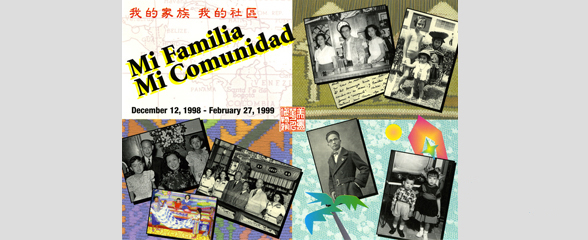
2015.007.001 Interview with Audrey Wong August 5, 1997
Wong was born in Kingston, Jamaica. Her racial background can be traced on her mother side to Africa, the Mediterranean, and the British Isles. Her father was born in mainland China and was from Canton. For Wong, being of mixed-race descent was different, but in a positive way. She describes being Chinese as something extra. She talked about her parents business, her neighborhood in Jamaica, and her father connection to the Chinese community in Jamaica. Wong discussed her educational background and the reason why she eventually left Jamaica.
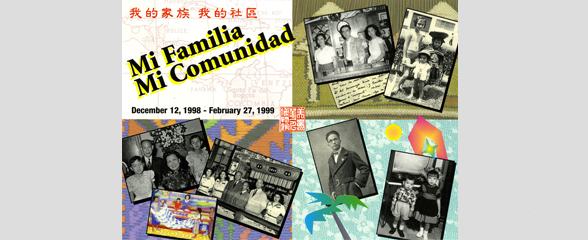
2015.007.002 Interview with Aurora Len August 27, 1997
Aurora Len, a Chinese-Cuban-American woman discusses her mixed background. She was born in and grew up in Havana, Cuba. Though her family was Chinese, her father and his brother were brought to Havana, Cuba by her grandfather at very young age after her grandmother passed away and later her father moved back to China and married her mother. Len herself went to China at age fourteen in 1937 and then moved to the United States to attend school in 1938. Len discusses her sense of belonging in Cuba as a Chinese person and her reasoning for identifying as Cuban-Chinese, and her experience immigrating to the United States to attend Ohio Northern University and then moving to New Jersey and starting a family there.
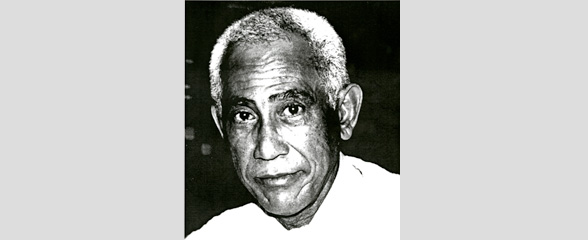
2015.007.003 Interview with Edouard Wah Ho, November 12, 1997
Edouard Wah Ho is a painter of Haitian and Chinese descent. He talks about how his father came to reside in Haiti after leaving China to avoid fighting during a war and raised a family there. His father owned several business to support Ho and his 7 siblings. But the two were unable to communicate due to the language barrier. His father only spoke Chinese and he did not. Ho goes on to discuss his 32 year marriage to his ex-wife, Micheline Alvarez, how he got started as a painter, and his cultural identity. He also touches on his extended family in the US, Haiti, and China.
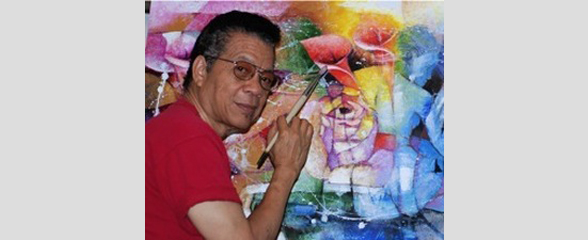
2015.007.004 Interview with Essud Fungcap, August 7, 1997
Essud Fungcap, a Haitian born artist and musician of Chinese and Haitian descent, recounts his family history, beginning with his father’s arrival in Haiti in 1928 to his eventual decision to marry his wife come to the United States. He recounts his childhood in Haiti, while his father created a successful laundry business and how he was draw to music and the arts rather than sports like the other children his age. He goes on to discuss the difficulties of being from two widely different cultures and how they have influenced his art and identity and what he hopes his children will be able to take from their Chinese heritage.
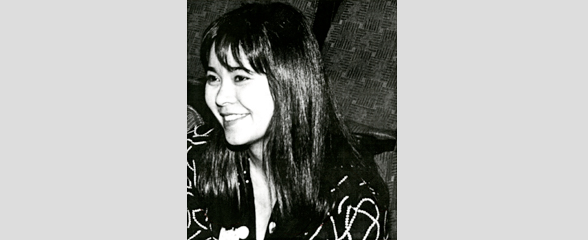
2015.007.005 Interview with Fabiana Chiu, August 25, 1997
Fabiana Chiu, a Chinese Peruvian woman, talks about her family origins in Peru and the circumstances that led them there. She talks about how her father tried to protect her and her siblings from racial stereotypes because of their outwardly Chinese appearance. But as a result was just perpetuating a stereotyping of his own. Eventually she journeyed to the United States in search of the “American Dream†because in Peru the corporate structure favored nepotism. She went to school and met her husband in Washington DC. Although she has moved to the US the stereotypes of Asian Latinos is still perpetuated in the Latin countries and those misconceptions are carried over to the US. She further discusses personal identity and how she would like her children to identify themselves if she had any.
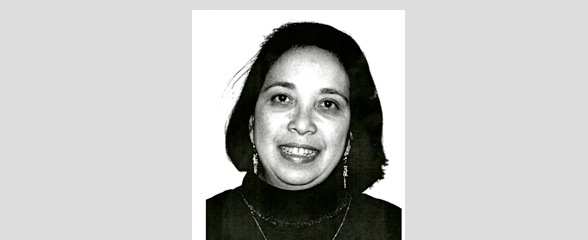
2015.007.006 Interview with Frances Bu January 21, 1998
Frances Bu, a woman of Cuban-Chinese descent, talks about life in Cuba as a child with a Chinese father and Cuban Mother. She talks about how her father came to reside in Cuba and how he won the love of her mother. Fidel Castro came into power when she was in her teens and the family decided to leave Cuba for the United States. Her father elected to stay behind. Once in the US she experiences an emphasis in a person’s race, a phenomenon she claims was never an issue in Cuba, where they were simply Cuban. She goes further to look through an old picture album with the interviewer and talk about the photographs.
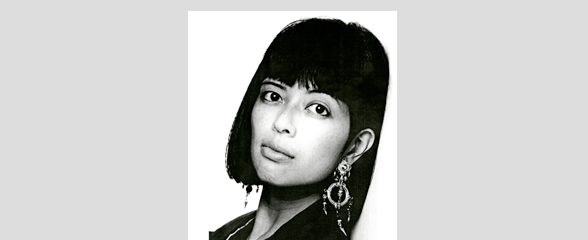
2015.007.007 Interview with Joyce Wong January 17, 1998
Joyce Wong discusses her Chinese and Puerto Rican heritage and being raised by a Chinese father and a Puerto Rican mother in Washington Heights, NY. She speaks in depth about her ethnic identity and how it played in relation to her growing up in a mostly Latino neighborhood. She also talks about marrying her husband and how their cultural values clashes.
Note that the interview ends abruptly.
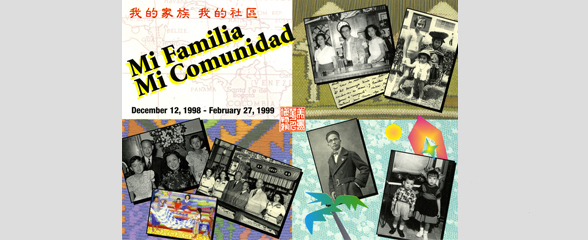
2015.007.008 Interview with Julio Chan Sanchez November 20, 1997
Julio Chan Sanchez, a Chinese born in Peru, talks about his experiences growing up in a small town and being one of the few Chinese children in the neighborhood. He discusses how old Chinese traditions affected his perception of people. All through his childhood his Chinese father told him not to trust Peruvians. Julio then goes on to talk about the subtle instances of racism that were present in his everyday life in Peru. Further he extrapolates about the history of his family based on information he has gleaned from relatives since they are all very tight lipped about the past.
Later he comes to the United States to escape from his family after he realized that he was gay. He came to the US to study. He talks about how his father and most of his family have an insistence that they marry Chinese, which caused some of his siblings to get married after their father had died to avoid his scrutiny.
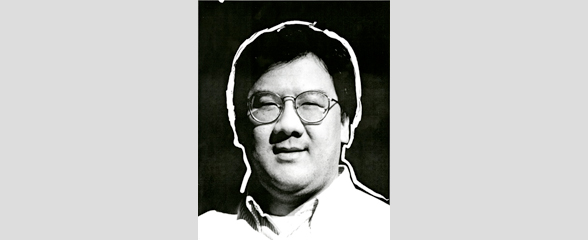
2015.007.009 Interview with Lamgen Leon June 19, 1997
Lamgen Leon, a Chinese man from the Dominican Republic, talks about the circumstances that led to his grandfather to the Dominican Republic. Eventually his grandfather sent for his father, who was a teacher in Hoyping. He then recounts his childhood in the town of Azua with his 7 siblings. Being one of the few Chinese families in the city not many Chinese holidays were celebrated. He discusses his parents desire that he only date Chinese or Chinese Dominican Girls.
He continues to talk about how at the age of 9 he was sent to Hong Kong to study and learn Chinese. He returned to the Dominican Republic nearly a decade later and finished high school before moving to New York for college.
Then finally in the second half of the interview he talks about how he met his wife Lillian, who worked in a jewelry store in New York. He discusses his choice of school and he eventually came to work at the Chinatown History Project.
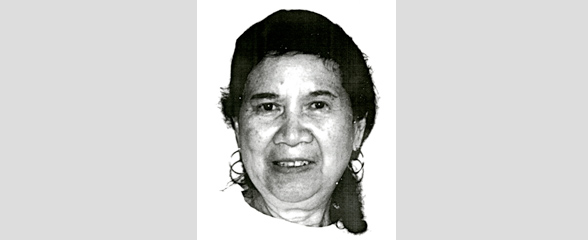
2015.007.011 Interview with Mary Chin August 15, 1997
Mary Chin, an American with Trinidadian and Chinese heritage discusses her mixed background and family heritage, including the cultural differences between Chinese-Trinidadians and Chinese people. Her mother came from a small town in Trinidad and her father came from China but moved to Trinidad and married her mother there. Her grandfather came from Venezuela but moved to Trinidad for political reasons. Her grandmother was Caribbean-Indian, and later remarried a Chinese man after her husband died. Mary was born in New York in 1922 went to the United States but her and her family moved back to Trinidad when she was four years old during the Depression due to financial reasons. Since her parents died while she was a child, she was mostly raised by her grandparents. Still, her family associated with the Chinese community in Trinidad. She returned to New York in 1941 to try to help her brother get back into America. Chin got married, had children, and attended college in the United States.